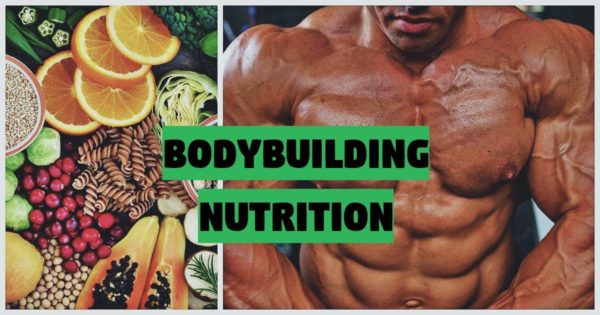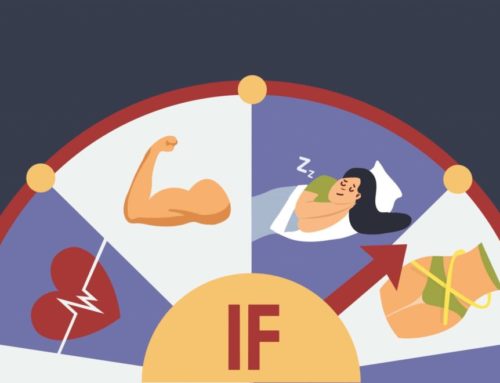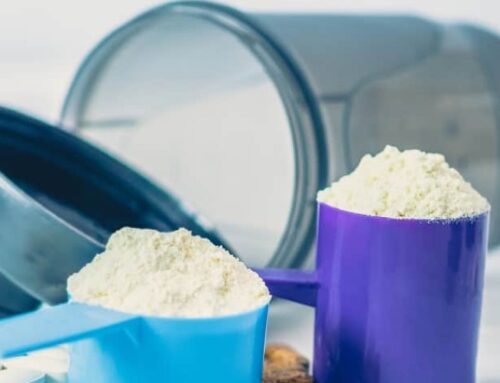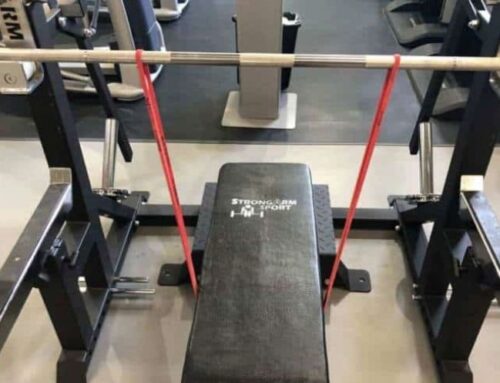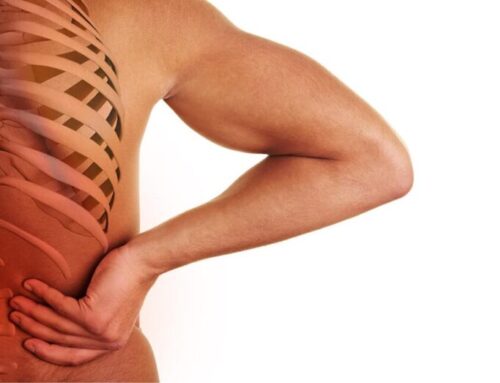Vitamins are really necessary for bodybuilding ???
Bodybuilding relies on two basic conditions:
- body fat loss
- massive muscle rebuilding
A big mistake usually made is the direction of attention to loss of stubborn body fat and building of muscle mass, forgetting a very basic factor at the same time, the diet.
A diet is not only the amount of meals but also the quality and the way these are distributed throughout the day.
Everything has its meaning and will contribute (positively or negatively) to the result.
NOTE: Proper intake of protein, carbohydrates, good fats, fiber, and adequate intake of vitamins and other nutrients is the “key” to the success of a workout.
As important as the right workout is, the diet is also as much important.
Vitamins for Bodybuilding: Help to Building of Muscles

In fact, there is no scientific research showing that direct administration of vitamins helps muscle to be rebuilt.
However, the relationship between vitamins and muscle gain is rather indirect.
In the course of hard training, the organism and the entire body are greatly stressed, touching actually their limits.
A strict diet aiming at the loss of body fat, when combined with hard workouts, is a heavy price for the organism to pay and might reduce the efficiency.
Adequate intake of vitamins and nutrients from meals combined with a good and beneficial sleep to ensure the body rest from strenuous workouts can keep the body strong, providing energy, strength and endurance, strengthening the immune system, preventing injuries, helping the digestive system function better, facilitating fat burning, and boosting metabolic rate.
There are a few benefits, in the end.
Vitamins for Bodybuilding : Useful for the Training Process

There are many vitamins necessary for training (for bodybuilders and for any athlete of any sport).
Let’s look at them and analyze how and why they should be introduced in the diet.
Vitamin B1 (Thiamin)
Vitamin B1 (Thiamin) is the one favoring the use of the carbohydrates received from the diet as a beneficial energy for your workouts.
Essentially plays a key role in the good functioning of the entire organism, as well as a crucial role in the process of producing ATP by the organism, supplying energy to each cell and promoting muscle rebuilding.
Inadequate intake of vitamin B1 from meals leads to serious malfunctions of important organs in the organism, such as heart, brain and central nervous system (CNS).
Fortunately, deficiency of vitamin B1 is a very serious condition, extremely rare in the advanced western world. Rare cases of vitamin D deficiency are associated with other serious illnesses such as Crohn’s disease, anorexia and alcoholism.
CAUTION: A good way to get adequate vitamin B1 from your diet is the consumption of sunflower seeds. Few know it, but 1/4 of a cup of sunflower seeds can cover 50% of your body’s daily vitamin B1 needs.
Vitamin B2 (Riboflavin)
Another vitamin of the vitamin B complex is the vitamin B2 or otherwise Riboflavin. This vitamin in addition to its well-known action on skin protection and care, provides another very important action in the organism, by ensuring the breakdown and proper utilization of all nutrients of meals (carbohydrates, proteins & fats), so to secure a good functioning of the organism.
Vitamin B2 found in various natural foods, is also met in some enriched foods in synthetic form.
By incorporating foods such as milk, cheese, yogurt, eggs, yogurt, red meat, salmon, tuna, soy, cereals and almonds into the diet, the vitamin B2 required by your diet is obtained by the organism.
CAUTION: The amount of vitamin B2 is very important to be checked especially during pregnancy in a woman, as it can affect the development and health of the fetus, leading to preeclampsia as well.
NOTE: Beef liver can provide 100% of daily vitamin B2 needs. In case of no meat consumption meat, then a glass of milk a day can cover about 30% of your needs.
Vitamin B9 (Folic acid)
Folic acid (a form of Vitamin B9 of B vitamins complex) helps in the health of nervous system, preventing malfunctions and defects.
Prevents anemia and stimulates the reproductive process of cells, a much easier and faster muscle growth.
Folic acid is found in various foods, such as asparagus, lentils, beans (mainly black), spinach, milk, peas, sunflower seeds, kiwi, papaya, oranges, whole-meal bread, liver, kidneys, lettuce and many other foods.
Vitamin B3 (Niacin)
Vitamin B3 is also one of B vitamins that plays a very important role in the process of producing beneficial energy for the organism. It also contributes to the proper functioning of the Central Nervous System (CNS) and promotes the proper functioning of the digestive system.
The main sources of vitamin B3 are chicken (especially breasts), turkey (also mainly breasts), tuna, halibut, yeast, milk, green vegetables, fortified cereals, fortified breads, nuts, but also the eggs.
Adequate vitamin B3 intake helps on the control of bad cholesterol levels and promotes good cardiovascular function. It strengthens the body and fights diseases such as cancer, cardiovascular disease and brain diseases.
NOTE: Vitamin B3 deficiency in developed cultures is extremely rare and is found mainly in people with an alcohol problem.

Vitamin C
Perhaps the most famous and widespread of vitamins, Vitamin C, is the key to a strong and healthy organism, a strong immune system and a body free of harmful toxins.
It fights colds and strengthens the body to be more resistant to external threats.
CAUTION: It is also – relatively unknown to most – responsible for maintaining connective tissue in cartilage and tendons throughout the human body. This helps to avoid injuries that can keep any person out of training routine.
Vitamin C – as known – is found in all citrus fruits (oranges, lemons, tangerines, grapefruit) and not only.
An important source of vitamin C is also found in Brussels sprouts, strawberries, broccoli, papaya and peppers (mainly reds).
Vitamin C intake has been scientifically linked to many health benefits related to various diseases such as cardiovascular disease, dementia, digestive diseases, hypertension and numerous other serious diseases.
Vitamin B7 (Biotin)
Vitamin B7, or biotin, belongs to vitamin B complex as well, promoting CNS function, being also an excellent vitamin for the skin and hair.
A very important role in the functioning of organism is its ability to maximize the action of all other nutrients, vitamins and minerals received through the diet.
Vitamin B7 is vital for anyone engaged in sports. It helps in the proper oxygenation of cells and promotes muscle growth.
CAUTION: Unfortunately, vitamin B7 or biotin is not easy to be found in a good amount of food, so using a good multivitamin is a necessary fact.
Vitamin A (Retinol)
Vitamin A, also called retinol, is the predominant vitamin providing eye health and good vision.
In addition, strengthens the immune system and plays an important role in the healthy development of bones in your body (therefore essential, especially in childhood and as long as the growing process of skeleton).
Ideal source of Vitamin A – as known – are the carrots.
NOTE: A small bowl of carrots can cover 600% of your daily vitamin A needs.
Nevertheless is not only found in carrots. Vitamin A can also be found in other foods such as sweet potato, spinach, turnip, peppers, broccoli, ricotta, apricots, beans, mango, herring (as well as all fatty fish) , milk, yogurt, eggs, liver, leafy vegetables, tomatoes

Vitamin E
Another very important vitamin for the organism’s health is Vitamin E, with powerful antioxidant activity and provision of strength to immune system for safeguarding health.
In addition, Vitamin E actively contributes to the formation of tissues in organism as well as to their repair. This helps the body to recover quickly and without injury after a hard workout.
Vitamin E is found in various foods such as almonds, spinach, greens, olives, olive oil, papaya, walnuts, pistachios, corn oil, soybean oil, peanut butter, asparagus, parsley red peppers, sunflower seeds and avocado.
NOTE: Vitamin E deficiency is rare in the advanced world because of foods abundance. However, when there is a lack of vitamin E, it is usually a sign of another illness, such as pancreatitis.
Vitamin D
Vitamin D – also known as sun’s vitamin – provides the body with a better absorption of precious metals, namely calcium and phosphorus, so helping in the healthy development and strengthening of bones.
Vitamin D is essential for those who exercise, since prevents serious bone injuries.
As we know we can find it in milk, as well as from eggs, salmon, tuna, shrimp, fortified yogurt, cheese, fortified margarine, sardines, herring and swordfish.
CAUTION: Adequate intake of vitamin D may prevent some forms of cancer. Sometimes vitamin D deficiency is manifested by muscle weakness, depression or even pain.
Vitamin K
Vitamin K is a valuable nutrient, playing a key role in good health and function of the heart and bone, but also in preventing blood clots.
Lack of Vitamin K signifies serious health problems, requiring attention.
To get a sufficient amount of Vitamin K, we need to include in our diet foods such as, broccoli, spinach etc.
References
https://en.wikipedia.org/wiki/Thiamine
https://www.webmd.com/vitamins/ai/ingredientmono-965/thiamine-vitamin-b1
https://www.medicalnewstoday.com/articles/219545.php
https://www.healthline.com/health/vitamin-watch-b1-thiamine
https://en.wikipedia.org/wiki/Riboflavin
https://www.medicalnewstoday.com/articles/219561.php
https://www.livescience.com/51966-vitamin-b2-riboflavin.html
https://www.webmd.com/vitamins/ai/ingredientmono-957/riboflavin
https://www.healthline.com/health/vitamin-watch-what-does-b2-do
https://www.mayoclinic.org/diseases-conditions/preeclampsia/symptoms-causes/syc-20355745
https://en.wikipedia.org/wiki/Pre-eclampsia
https://www.webmd.com/baby/preeclampsia-eclampsia
https://en.wikipedia.org/wiki/Niacin
https://www.webmd.com/diet/supplement-guide-niacin#1
https://www.healthline.com/nutrition/niacin-benefits
https://www.medicalnewstoday.com/articles/219593.php
https://www.livescience.com/51825-niacin-benefits.html
https://en.wikipedia.org/wiki/Vitamin_C
https://www.healthline.com/nutrition/vitamin-c-benefits
https://en.wikipedia.org/wiki/Biotin
https://www.healthline.com/health/biotin-hair-growth
https://www.webmd.com/vitamins/ai/ingredientmono-313/biotin
https://www.medicalnewstoday.com/articles/318724.php
https://www.webmd.com/vitamins/ai/ingredientmono-1017/folic-acid
https://www.drugs.com/folic_acid.html
https://www.medicalnewstoday.com/articles/219853.php
https://www.womenshealth.gov/a-z-topics/folic-acid
https://ods.od.nih.gov/factsheets/VitaminA-HealthProfessional/
https://www.webmd.com/vitamins/ai/ingredientmono-964/vitamin-a
https://www.nhs.uk/conditions/vitamins-and-minerals/vitamin-a/
https://www.nhs.uk/conditions/vitamins-and-minerals/vitamin-e/
https://www.webmd.com/vitamins/ai/ingredientmono-954/vitamin-e
https://www.hsph.harvard.edu/nutritionsource/vitamin-e/
https://en.wikipedia.org/wiki/Vitamin_E
https://ods.od.nih.gov/factsheets/VitaminD-HealthProfessional/
https://my.clevelandclinic.org/health/articles/15050-vitamin-d–vitamin-d-deficiency
https://www.vitamindcouncil.org
https://medlineplus.gov/vitamind.html
https://en.wikipedia.org/wiki/Vitamin_K
https://www.healthline.com/nutrition/foods-high-in-vitamin-k

